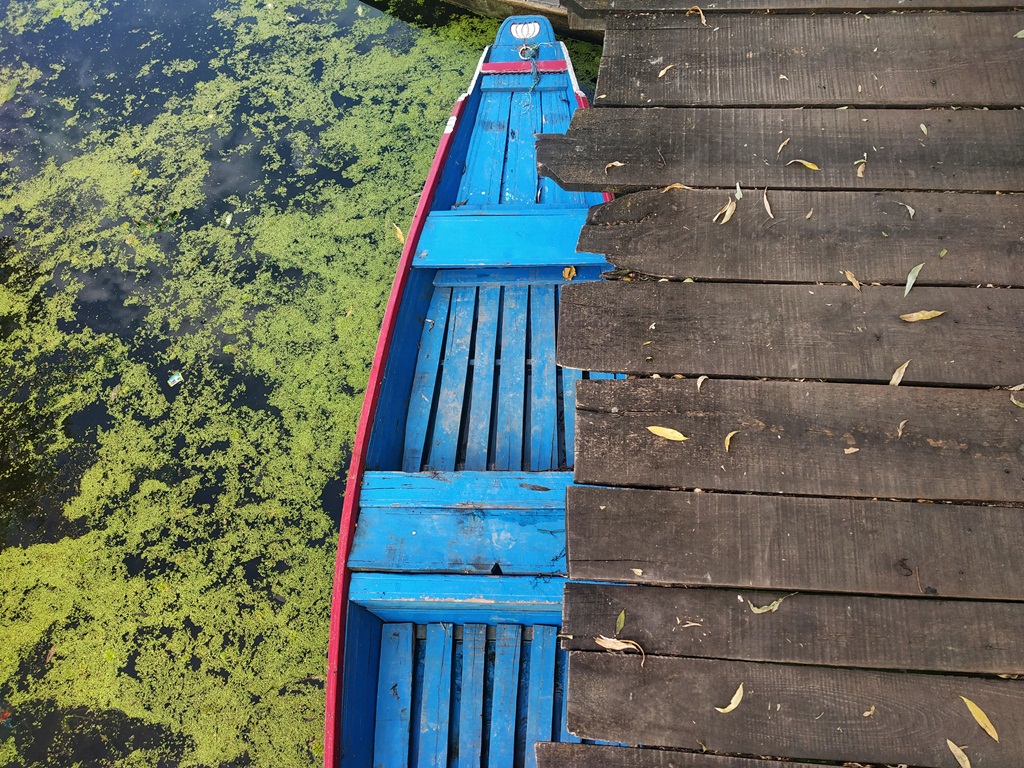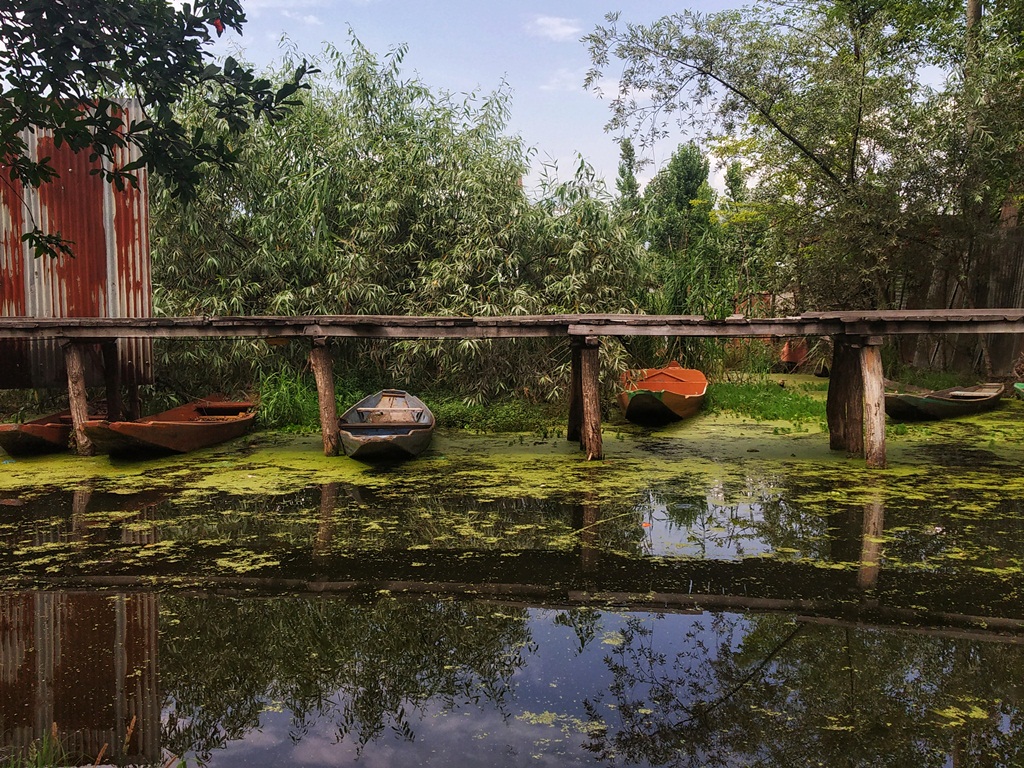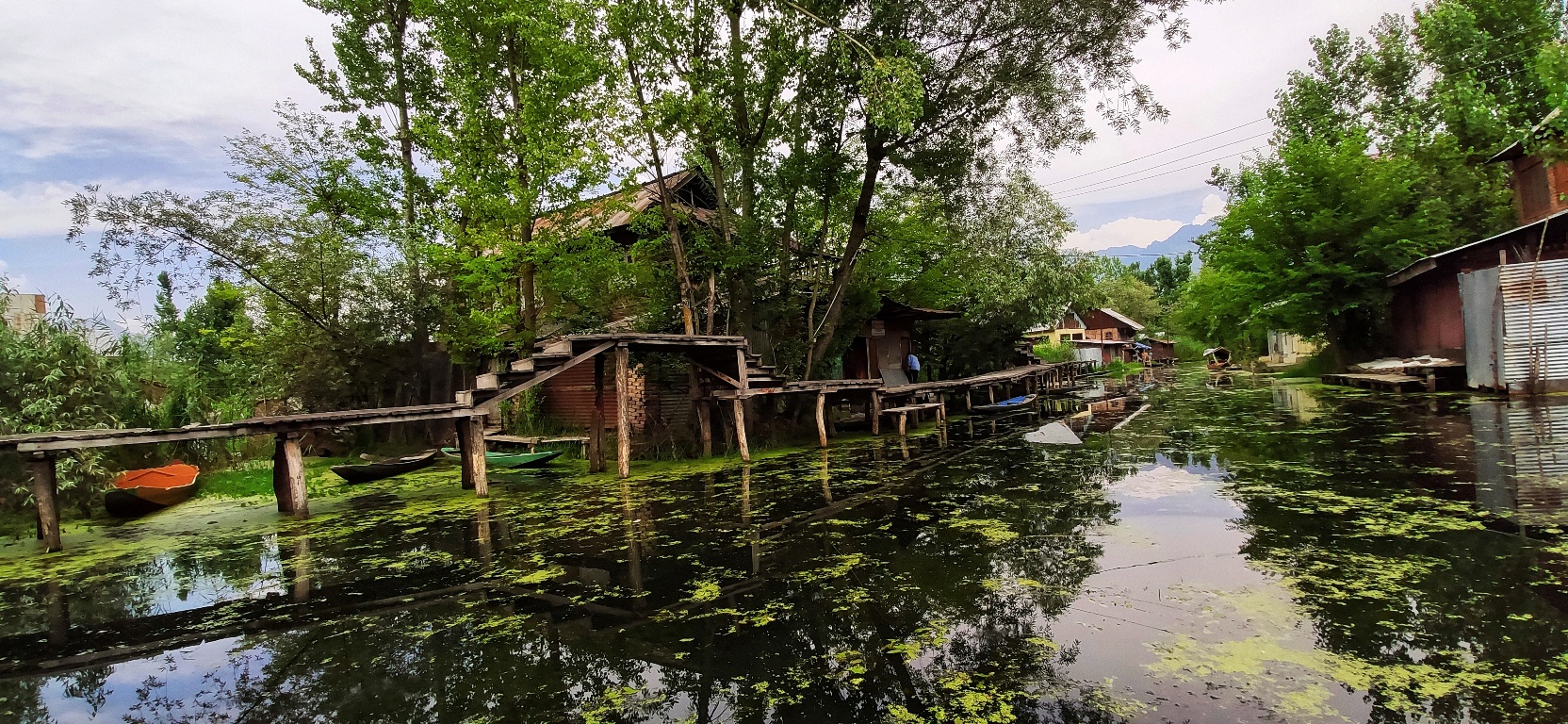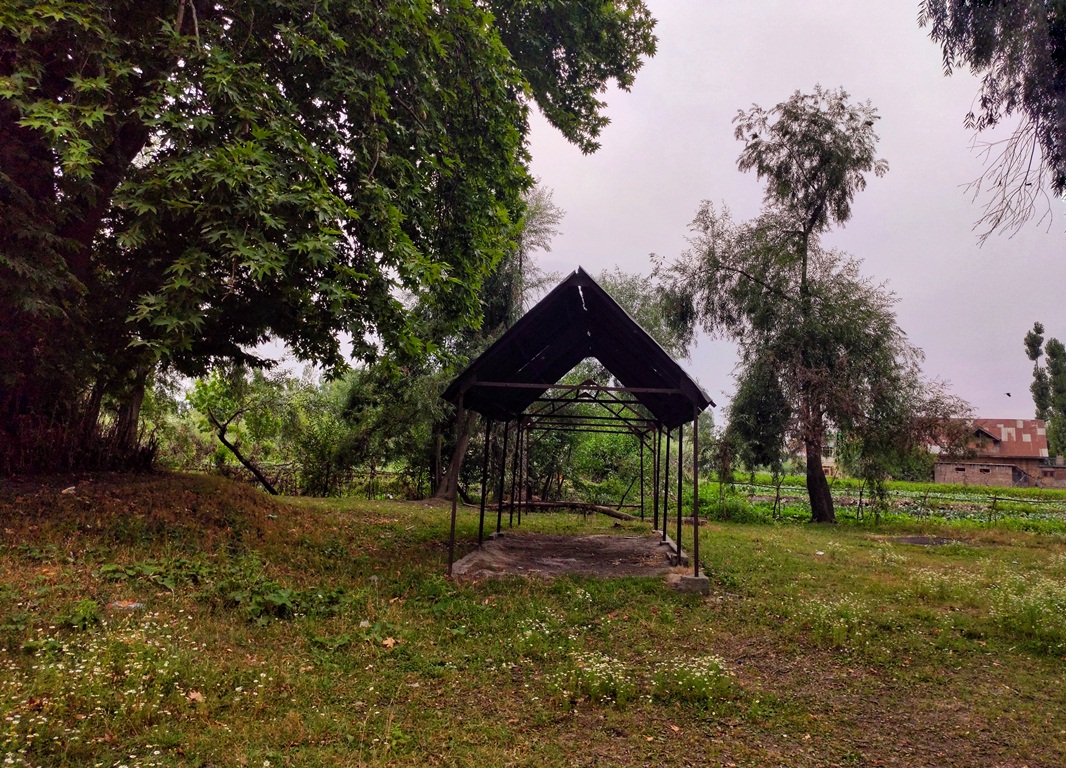Inside Kashmir’s Ghostly Cremation Ground Guarded by Muslims

Adil Amin Akhoon is the Managing Editor at The Mountain…
The islet where farewell moments were once performed by Muslim cremators has now become a shimmering example of loyalty.
Birds chirping and insect shrilling evocatively echo a ghost islet in the backwater of iconic Dal Lake. The shed under which pyre was once prepared still stands under the shade of mighty Chinars. Dead would arrive here on Shikaras, than shoulders.
But now, neither dead arrives, nor fleeting farewell drives out the deepened desolation.
The third-generation cremator doubling as custodian, however, continues to live up to Kashmir’s communal harmony image.
Spread across 6.6 kanals of the islet, Awrein, or cremation ground, now mainly hosts the lockdown-weary neighborhood boys who turn up for an unruffled angling session.
But one man, named Ghulam Rasool Bhat, is still at the job. He makes it sure to keep it free from wackos and weeds.
Support Our Journalism
You are reading this because you value quality and serious journalism.
But, serious journalism needs serious support. We need readers like you to support us and pay for making quality and independent journalism more vibrant.
Till Pandit migration commenced in Kashmir during 1990, this islet would witness the departed rising up in curls of smoke amid sobs and wailing.
But now, nobody is turning up.

Even non-migrant Pandits prefer Batamaloo Awrein or Jhelum ghats of Habba Kadal for farewell.
“Ferrying dead in the interiors of Dal Lake is a tiring task,” Bhat says. “I remember the last boat carrying a dead Pandit arrived here some 30 years ago.”
At 70, Bhat recapitulates how his grandfather and father used to cremate—Aantim Sanskaar—the deceased in the islet.
Bhat’s house is in the piece of land next to Jalle Mohalla of Rainawari. It’s surrounded by water on all sides. The weather-beaten residents say the place got the name, Jalle Mohalla, from Bhats—who used to cremate the dead from the KP community.
Back in the day, when KPs were yet to desert the valley, most of them had approached Bhat’s grandfather for the job they didn’t somehow think fitting for themselves.
“It was my grandfather who first started it,” said nostalgic Bhat inside his ramshackle residence.
After that, Bhats came to be known as “Kaawej”—the stereotypical sobriquet for Kashmiris cremating dead. With the passage of time, the euphemism has set in: slur-sounded “Kaawej” have become somewhat-suitable “Kaawej”.

“Be it Mallekhesh (gravedigger) or Kaawej (cremator), people have always looked down upon those who do last rites of our dead,” Bhat voiced the unspoken agony. “We only shoulder society’s responsibility. And if it’s such a below-the-dignity job, then who’ll remain in the society to do the last rites of the dead?”

Even today, most dismiss graveyards or cremation grounds as some unwanted places, Bhat, a former tailor, said.
“People are living in a fool’s paradise. They don’t realize how everyone at the end is bought in these places, to start another journey of the hereafter.”
A gravedigger or Kaawej plays an important part in the life cycle, Bhat asserts: “Hazrat Admas aaes zeei gabar, ek raet awrein, ek raet qabar (Adam had two sons, one was cremated, another buried).”
Bhat’s late father carried cremation services for over 30 years before calling it a day in 1996—when he passed away. The late Bhat would cremate around four dead Pandits in a month after making necessary arrangements, from collecting wood to preparing funeral pyre.
“I remember one day a Kashmiri Pandit came to my father and told him to start preparing for the cremation of his departed family member,” the septuagenarian son recalls. “After cremation, my father went to collect his dues, but he found the deceased’s family very poor. He didn’t charge a penny from them.”
For each cremation, Bhat’s father would make an earning between Rs 50 and 100 — his main family income source.

“Then,” Bhat says, “Kashmiris never used to think this job is for a particular community because there was so much of belongingness and communal spirit in the society.”
But before brought to the islet for cremation, the dead would be taken to the Jogi Lanker’s temple, Bhat recalls, where Pandits used to pray for the dead before following aarthi (funeral procession) in other Shikara riding towards Awrien.
The Shikara carrying the dead used to pass through the Rainawari locality, while Muslims and Pandits would look from small windows mumbling prayers for the departed person’s soul.
After cremation, Bhat would help his father to collect asthiya which KPs, later on, immerse at Shadipur or Doodh Ganga.
“Despite being the sad place, this islet has witnessed some overwhelming scenes,” Bhat recounts. “I’ve seen Muslims consoling Pandits and Pandits consoling Muslims in the times of grief.”

But when KPs left in the 90’s, Bhat was told by his departing brethren: “Awrein che tchei hawaal (Take care of this cremation ground).”
“My father would respond: Ye che Khudayas hawaal (Allah will take care of this cremation ground).”
And soon as Pandits left, paramilitary established their writ over the area.
“Before my father’s demise,” Bhat says, “he would reprimand Border Security Forces men for cutting down trees of Awrein for heating and cooking purposes.”
Such was his sense of devotion that Bhat Sr. took the tree-cutting matter to the concerned authorities one day. Following this, BSF had to plant some trees which, Bhat says, soon withered away.
“All these years, we made it sure that not even an inch of Awrein land should be illegally grabbed or occupied by anyone,” Bhat says. “This is the land of God and that’s why nobody ever thought of occupying it.”
The family’s devotion hasn’t gone unnoticed either.
Some years back, Bhat says, some local KPs visited and offered his family three kanals of land from Awrein.
“But we told them, ‘This land belongs to you, and we don’t have any right on it, except the right of guarding it till we’re alive’.”
To help us strengthen the tradition of quality reading and writing, we need allies like YOU. Subscribe to us.
Mountain Ink is now on Telegram. Subscribe here.
Become Our Ally
To help us strengthen the tradition of quality reading and writing, we need allies like YOU. Subscribe to us.









